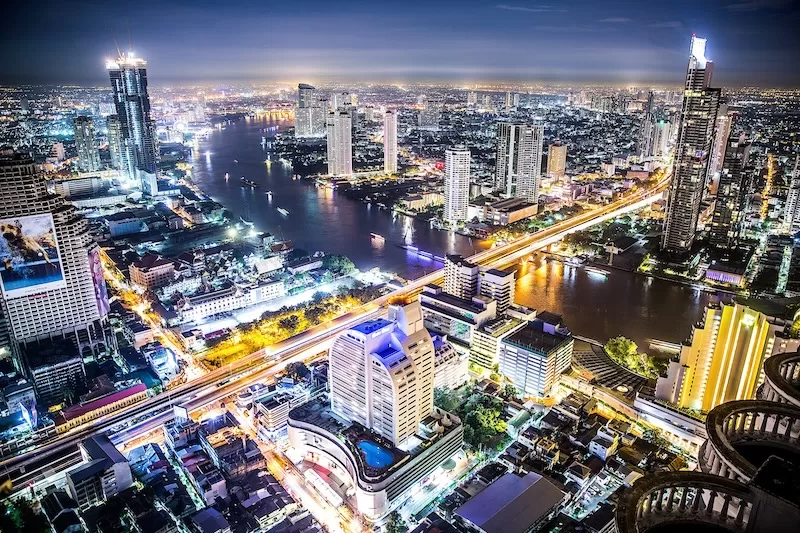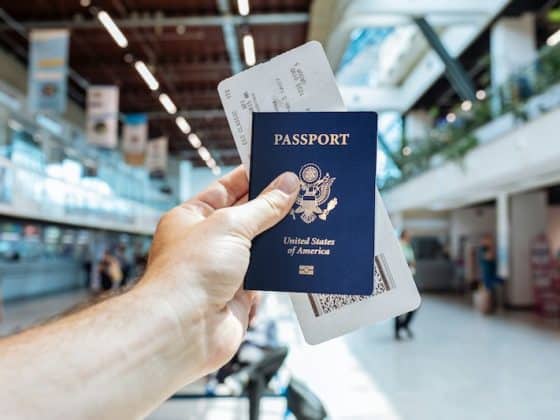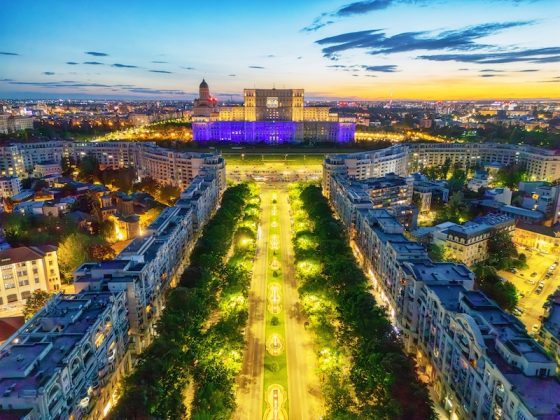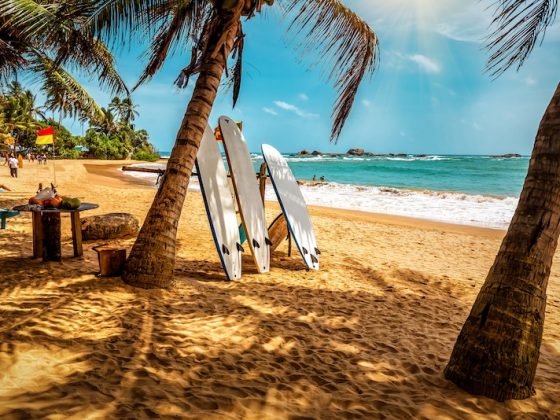Introduction
Looking to rent in Thailand? Whether as a digital nomad, an expatriate, or someone relocating long term, finding the ideal Thailand apartments for rent can feel like navigating a maze. You’ll want the right mix of affordability, location, comfort, and legal safety. In this guide, we’ll walk you through every step: from market trends to neighborhoods, pricing to negotiation tactics, so you can confidently secure a great apartment in Thailand in 2025.
Why Rent Instead of Buying in Thailand
Shifting Market & Demographics
Thailand’s real estate market is seeing a generational shift. Over 66% of Gen Z and Millennials reportedly prefer renting over buying, valuing flexibility and lower financial commitment. Additionally, rising interest rates and tighter lending have made property purchases less accessible for many, causing an uptick in rental demand.
Affordability & Flexibility
Renting in Thailand gives you flexibility: if job opportunities shift, you can relocate more easily. Plus, you avoid long-term capital tied up in property. For many, the cost gap is significant: in Bangkok, a 1-bedroom apartment in the city center runs about USD 445 monthly on average, while further out you may find units for around USD 245. That flexibility is a major draw compared to committing to a full property purchase.
What Impacts Rental Prices in Thailand
Understanding what drives rental prices helps you make smarter decisions and spot genuine value instead of just “cheap rent.” In Thailand, several interconnected factors shape how much you’ll pay, from geography to seasonality.
City vs. Rural / Island vs. Inland
Location is the single biggest variable. Bangkok, Phuket, Pattaya, and Koh Samui consistently command higher rents than inland or northern cities like Chiang Mai, Lampang, or Khon Kaen. Bangkok’s central zones (Sukhumvit, Silom, Sathorn) attract expats and professionals, creating constant demand. Rent for a 1-bedroom in these districts may reach $650–$1,000 USD per month, while similar comfort outside the city center can fall below $400 USD.
On islands, demand fluctuates seasonally. During high tourist months (November to March), short-term rentals and serviced apartments surge in price, especially near beaches or ferry terminals. Conversely, in rural or inland provinces, long-term leases can cost a fraction (sometimes under $250 USD monthly) but may lack access to international schools, public transport, or modern facilities.
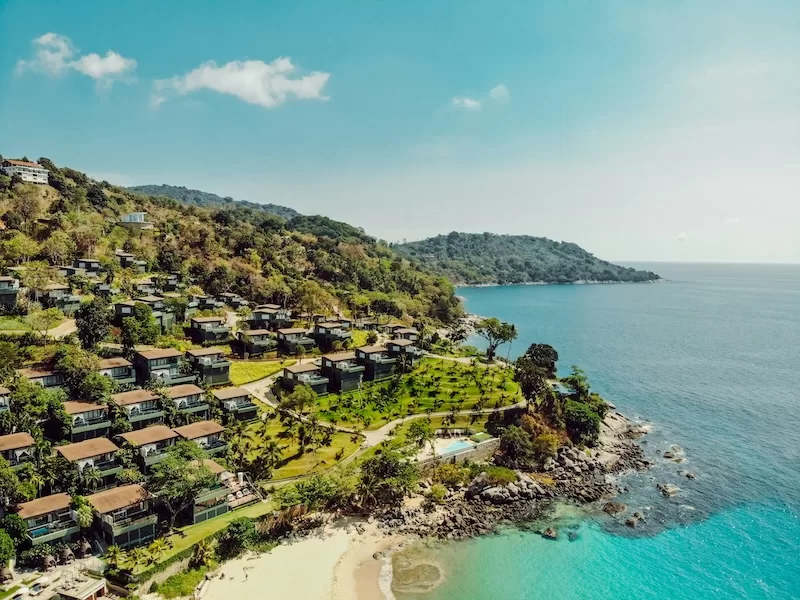
Proximity to infrastructure also matters: apartments near MRT or BTS lines in Bangkok, or close to ferry piers and main highways in coastal areas, always command a premium. Even being within walking distance of a 7-Eleven or shopping mall can raise the rent slightly, given Thailand’s emphasis on convenience.
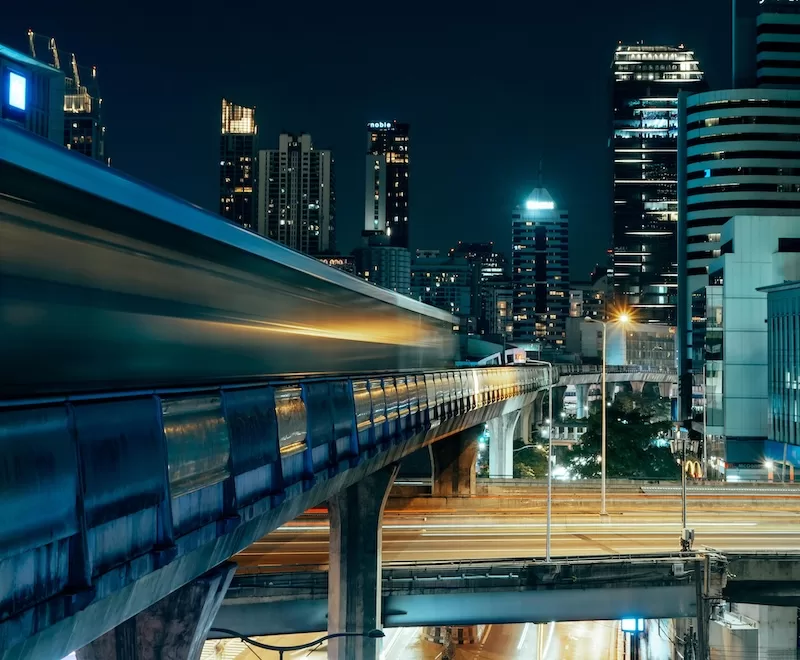
Type, Size & Amenities
Unit size and style dramatically influence cost. Studios or compact 25–30 m² apartments cater to solo tenants and are the most affordable. A modern 1-bedroom (around 40–50 m²) in a mid-range building may sit near $500–$700 USD per month. Luxury condos, particularly those offering skyline views, high-speed elevators, rooftop pools, and 24-hour security, can easily exceed $1,200 USD monthly in prime areas.
Furnishing level also drives pricing. Fully furnished or serviced apartments, often targeting short-term expats or business travelers, come with cleaning, linens, and utilities included, pushing up monthly costs by 20–30%. Unfurnished or semi-furnished units are cheaper, but you’ll need to invest upfront in furniture and appliances.
Even subtle building perks matter: covered parking, an in-house gym, fiber internet, or on-site laundry can add small but consistent premiums. In major urban areas, competition between new high-rise developments has also led to amenity inflation, meaning more features at higher base prices.
Lease Term & Market Conditions
Lease duration and timing can significantly affect what you pay. Longer leases (12 months or more) often come with discounts: landlords value stable tenants and may lower rent by 5–10% for year-long commitments. Short-term rentals, on the other hand, especially month-to-month contracts, can cost much more due to flexibility and turnover.
Market conditions also play a crucial role. When tourist arrivals drop or new condo developments flood the market, vacancy rates rise, giving tenants stronger negotiating power. Conversely, in periods of high demand, like Thailand’s cool season (December–February), competition tightens and landlords may stand firm on pricing.
Foreign tenants should note that local landlords typically prefer cash payments and deposits in Thai baht, though some high-end or corporate landlords quote in U.S. dollars. Always clarify this early to avoid exchange-rate surprises.
Typical Rental Costs (2025 Data)
Understanding average prices helps you calibrate expectations.
Bangkok & Major Cities
- The median rent for condos in Bangkok is about $972 USD per month.
- Some listings in Bangkok show 1-bedroom condos from ~$462 to $770 USD depending on location, building age, furnishings, etc.
- The gross rental yield in Bangkok now averages 6.05% (up from ~4.5% in past years) making lease returns attractive in comparison to many global markets.
- Nationwide, the average gross rental yield is ~6.20% as of Q3 2025, one of the healthiest ratios in Southeast Asia.

Secondary Cities and Islands
Outside the capital and major resort hubs, Thailand offers a wide range of secondary cities that combine lower costs with strong lifestyle appeal. These areas often attract digital nomads, retirees, and long-term expats looking for calmer surroundings.
- Chiang Mai remains the standout. A cultural and tech-friendly hub in the north, it offers spacious one-bedroom apartments from $280 to $500 USD per month. The city’s café culture, international schools, and coworking spaces make it a favorite for remote workers.
- Khon Kaen, a growing northeastern university city, delivers some of the lowest rents in the country: $200–$350 USD for modern condos or serviced studios.
- Udon Thani and Nakhon Ratchasima (Korat) appeal to expats seeking authentic local life, with rents averaging $250–$450 USD for clean, centrally located apartments.
- On the coast, Hua Hin blends beach living with city convenience, with rents around $500–$750 USD for 1-bedroom condos near the sea, significantly below Phuket or Samui.
- Chiang Rai offers an even quieter northern lifestyle, with small apartments or townhouses often below $300 USD monthly.
- On smaller islands like Koh Phangan or Koh Chang, long-term monthly rentals outside high season can dip to $350–$600 USD, though availability varies with tourism cycles.
These cities generally feature lower population density, slower-paced lifestyles, and easier access to nature, plus thriving expat communities and rapidly improving infrastructure. Their affordability and quality of life make them appealing bases for long stays or remote work.
Rental Yields & Returns
Thailand’s aggregate residential real estate market is estimated at USD 163.07 billion in 2025, with steady growth driven by tourism recovery, urban migration, and foreign investment. The rental yield environment is favorable to investors, which also pushes rents upward over time. In Bangkok, the rise to 6.05% shows that rentals are now seen more as cash-flow assets. In secondary markets like Chiang Mai or Hua Hin, yields can be slightly higher (6.5–7%) due to lower acquisition costs and consistent expat demand, a trend worth watching for both renters and investors.
Cost Comparison: Major & Secondary Cities (2025)
| City / Region | Average 1-Bedroom Rent (USD/month) | Typical 2-Bedroom Rent (USD/month) | Lifestyle Snapshot |
| Bangkok | $462–$972 | $750–$1,500 | Cosmopolitan hub; BTS/MRT access, nightlife, shopping malls |
| Chiang Mai | $280–$500 | $500–$750 | Cultural northern city, strong expat base, slower pace |
| Hua Hin | $500–$750 | $750–$1,000 | Coastal living with urban comforts, popular with retirees |
| Pattaya | $450–$700 | $650–$950 | Beach city close to Bangkok, nightlife, modern condos |
| Phuket | $700–$1,200 | $1,000–$1,800 | Island lifestyle, premium for sea views & tourist demand |
| Koh Samui | $550–$950 | $800–$1,400 | Smaller island vibe, luxury villas & serviced apartments |
| Khon Kaen | $200–$350 | $400–$600 | Academic and medical hub in Isaan region, low cost of living |
| Udon Thani | $250–$450 | $450–$700 | Growing expat community, affordable and authentic Thai feel |
| Chiang Rai | $230–$400 | $400–$600 | Peaceful northern city with access to nature and coffee culture |
Data compiled from property listings on FazWaz, Thailand-Property, and Nomad List (2025 averages).
How to Find and Secure an Apartment
Online Platforms & Local Agencies
Major property websites like FazWaz list thousands of rentals across Thailand. Others include Thailand-Property.com and local agencies in city neighborhoods.
However, listings can be outdated or duplicated. It’s common for the same apartment to appear multiple times under different agents. Always verify the property’s availability before transferring any deposit. For long-term leases, it’s best to start online research before arrival, then book a short stay (like an Airbnb or hotel) for the first week while you visit properties in person.
Local agents, especially those based in popular expat neighborhoods like Chiang Mai’s Nimman area or Bangkok’s Sukhumvit, can often show units that aren’t listed online. They also help bridge communication gaps with Thai landlords, who might prefer phone calls or in-person discussions over email.
Inspection, Negotiation & Lease Agreements
Always inspect in person before signing. Photos online can be outdated, and lighting or angles may hide flaws. During the visit, check:
- Water pressure and heater functionality
- Noise levels (especially in busy districts or near night markets)
- Air conditioning efficiency and age of appliances
- Internet speed (ask to test Wi-Fi or mobile coverage)
- Condition of common areas, like elevators and hallways
Don’t hesitate to negotiate, it’s normal in Thailand. Landlords often list prices with room for bargaining, especially for longer leases or low-season rentals. Negotiation might result in a 5–10% discount, waived maintenance fees, or added furnishings.
When you agree on terms, ensure your lease agreement is in writing and includes:
- Rental amount and due date
- Lease duration and renewal options
- Deposit details and refund conditions
- Utility responsibilities (some condos charge higher rates than the state)
- Maintenance or cleaning obligations
- Termination clauses (with notice period)
- If the contract is in Thai, ask for an English translation or have it reviewed by someone fluent.
Legal Things to Watch Out For
- Deposits: Typically one or two months’ rent; refundable if no damages occur.
- Advance payment: One month’s rent upfront is standard. Avoid requests for more unless justified (e.g., high-end serviced apartments).
- Utility caps: know who pays electricity, water, internet
- Termination clauses
- Receipts: Always request signed receipts for deposits and rent payments.
- Foreigners should ensure the landlord is the rightful owner or agent
- Visa registration: Landlords are legally required to file a TM30 form to report a foreign tenant’s stay. Make sure this is done, as it can affect your visa renewals or re-entries.
- Ownership laws: Foreigners cannot own land but can legally rent or own condos in buildings with up to 49% foreign ownership. For long-term residence, leasehold agreements (30 years) are common, particularly in resort areas like Phuket or Hua Hin.
Extra Tips for Safe Renting
- Avoid cash-only deals unless you’ve seen the property and verified ownership. Bank transfers offer proof of payment.
- Check online reviews of condo buildings or serviced apartments; they reveal maintenance quality, management, and hidden fees.
- Timing matters: April–October (low season) often sees lower rents and better availability in beach destinations.
- Ask about furnishings: “Fully furnished” in Thailand can range from just a bed and fridge to complete décor and kitchenware.
- Stay flexible: If you plan to explore, consider a six-month lease with extension options, allowing you to move without penalty.
Neighborhoods & Regions to Consider
Bangkok
- Sukhumvit (Thonglor, Ekkamai, Phrom Phong): trendy, cosmopolitan, vibrant, well-connected, popular with expats
- Sathorn / Silom: business districts with upscale condos, rooftop bars, and proximity to embassies. Excellent for business travelers
- Rama IX, On Nut, Bang Na: More affordable, family-friendly areas with improving transport links. Good value for those who prefer quieter zones without leaving the city.
- Riverside districts: offer scenic views but may trade off ease of transport

Chiang Mai, Phuket, Pattaya, Koh Samui
- Chiang Mai: great for digital nomads; moderate rents, creative scene, relaxed pace. The Nimmanhaemin area is the most popular for expats and remote workers
- Phuket & Islands: Offers luxury villas and condos with ocean views. Patong and Kata are lively, while Rawai and Nai Harn suit long-term renters seeking peace.
- Pattaya: Known for its beachside convenience and nightlife, yet areas like Jomtien and Pratumnak Hill attract retirees for their quieter atmosphere.
- Koh Samui / Koh Phangan: island rentals suitable for long stays, but logistics (internet, transport) are important
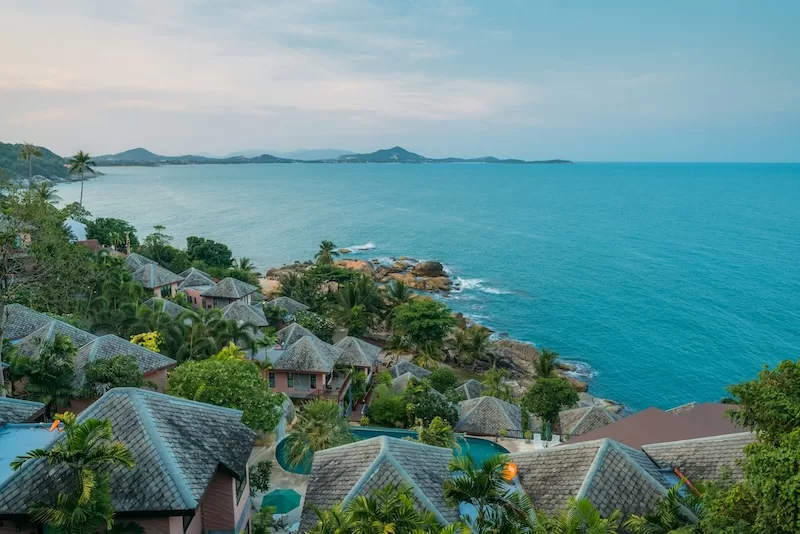
Hua Hin
Often called Bangkok’s weekend escape, Hua Hin blends seaside tranquility with modern infrastructure. It’s a favorite among retirees and golf enthusiasts, with 1-bedroom apartments typically ranging $500–$750 USD per month. The town features international hospitals, Western supermarkets, and regular trains to Bangkok, ideal for those wanting beach life without island logistics.
Chiang Rai
Just three hours north of Chiang Mai, Chiang Rai is a smaller, greener, and quieter northern option. It’s popular with artists and slow travelers, offering mountain views, night bazaars, and modern condos for under $400 USD monthly. Internet and infrastructure have improved greatly in recent years, making it suitable for remote work.
Isaan Region (Northeast Thailand)
Thailand’s most authentic and affordable region, Isaan includes cities like Khon Kaen, Udon Thani, Nakhon Ratchasima (Korat), and Buriram. Rents can drop below $300 USD for modern apartments. These cities are inland but increasingly well-connected by high-speed rail and airports. They appeal to expats seeking immersion in Thai culture, lower costs, and less tourist saturation.
Tips to Maximize Value
Think of renting an apartment like booking a flight. If you book well in advance (or in off-peak time), you’ll get a better deal. If you wait until demand is high, prices surge. Similarly, if you arrange your move and lease during lower demand periods (e.g. not peak tourist season), you gain negotiating power.
Example: Suppose you arrive in Bangkok in June (a slightly lower-demand month). You inspect a unit listed at $678 USD. By pointing out minor flaws (faucet leak, wall paint), you negotiate to ~$631 USD or ask the landlord to waive the deposit for extra stability.
Another tip: offer to take a 1-year lease rather than 6 months; that gives the landlord certainty and often gets you a lower per-month rate.
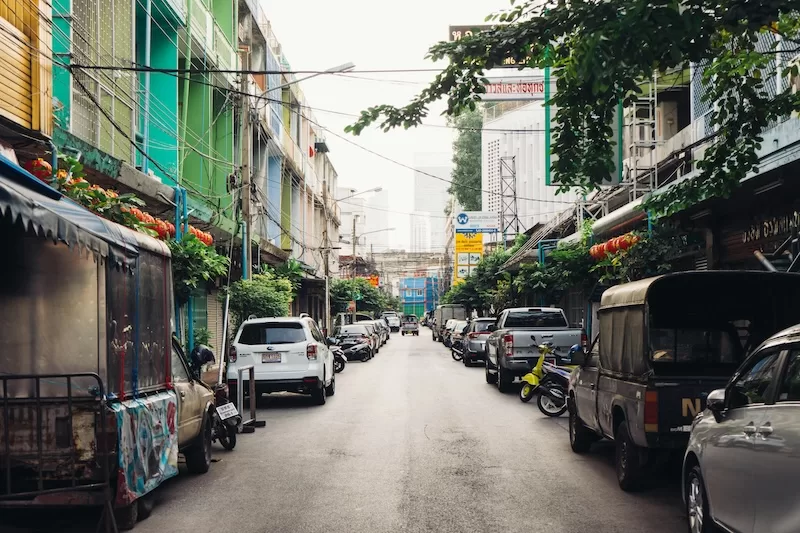
FAQs
Q1: Do foreigners face restrictions renting apartments in Thailand?
Not really. Foreigners can freely rent property throughout Thailand; only land ownership has restrictions. Rental agreements are fully legal and recognized under Thai law.
Q2: How much is a typical security deposit?
Most landlords request one to two months’ rent as a deposit, refundable when the lease ends if there’s no damage or unpaid bills. Sometimes more in luxury properties.
Q3: Can I sublet or terminate early?
Only if your lease explicitly allows it. Check the termination clause carefully to avoid penalties.
Q4: Do I need a guarantor or local references?
Not always, but some landlords ask for proof of income, a work permit, or a Thai guarantor, especially in high-end buildings.
Q5: Are utilities included?
Usually not. Tenants typically pay electricity, water, and internet separately, with rates varying by building or district.
Q6: Can I pay rent in U.S. dollars or online transfers?
Rent is almost always paid in Thai baht, either by bank transfer or cash. Some serviced apartments or luxury condos may accept foreign currency or international transfers.
Q7: Do I need a visa to rent long-term in Thailand?
Yes, for stays over 30 days, you’ll need a valid visa (such as a retirement, education, or digital nomad visa) depending on your situation. Many landlords will ask to see your visa or passport before signing.
Q8: Are short-term rentals (like Airbnb) legal in Thailand?
Short-term rentals under 30 days are restricted in many areas unless the building is licensed as a hotel. For flexible stays, choose monthly serviced apartments or long-stay condos instead.
Q9: How can I avoid rental scams in Thailand?
Work only with verified agents or landlords, view the property in person, and never send deposits before confirming ownership. Always ask for a signed receipt and cross-check the address on official documents.
Renting Smart in Thailand Starts with Knowing the Market
Finding Thailand apartments for rent is easier when you understand how the market truly works. Prices shift between Bangkok’s skyline condos and Chiang Mai’s leafy lanes, but the fundamentals stay the same: clarity, preparation, and a little cultural awareness go a long way.
This guide has given you a full picture: how rental markets differ across regions, which neighborhoods match your lifestyle, and what details to watch for in leases and deposits. Instead of getting lost in vague listings or hidden fees, you now know what’s reasonable, what’s negotiable, and what’s simply not worth it.
The rental market here rewards those who do their homework. So, take what you’ve learned, compare areas confidently, and secure a home that fits your life, not just your budget.
Contact Author
"*" indicates required fields
Stay Ahead on Every Adventure!
Stay updated with the World News on Escape Artist. Get all the travel news, international destinations, expat living, moving abroad, Lifestyle Tips, and digital nomad opportunities. Your next journey starts here—don’t miss a moment! Subscribe Now!
